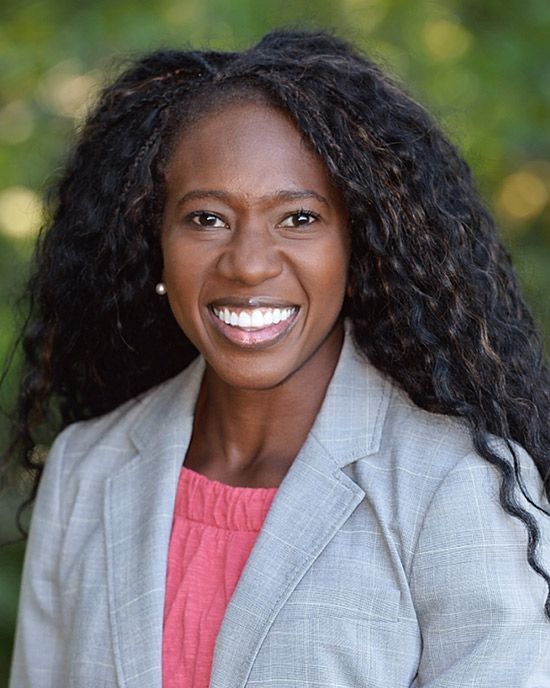You cannot be an excellent institution unless every single person is able to be their authentic self and is fully able to participate."
Stephanie Bramlett

A conversation with Exeter’s director of equity and inclusion
Stephanie Bramlett views the world from many perspectives — and often while hanging upside down.
The Academy’s first director of equity and inclusion is a master aerialist who performs high-flying tricks on silks, trapeze and lyra hoops. But that’s just what she does for fun. Her substantial academic CV includes degrees in communications, political science, political philosophy and sociology. She developed a “Vision for Inclusive Excellence” during her tenure at St. Luke’s, an independent school in Connecticut, and worked closely with historically-underrepresented students adjusting to their first year of college at the University of New Hampshire.
She joins Exeter to help guide and build the school’s policies and practices of inclusion. We spoke with her about her new role, just as she and her husband — along with their 11-year-old Jack Russell terrier — were preparing to move to campus.
Q: This is a completely new position for PEA — you could almost write your own job description.
Bramlett: Even though this is an inaugural position, this work has been going on at Exeter for decades. Exeter is a place that in every fiber of the institution there has been a commitment to diversity. That is so compelling for me.
Q: You came from a similar job at St. Luke’s. Are these positions common at independent schools?
Bramlett: Back in the early 2000s, there were positions like the director of diversity. Then it shifted to director of multiculturalism. Now we’re seeing the shift from thinking about diversity to thinking about inclusion. And not just thinking about inclusion, but equity. Does every person have what they need in order to be successful on campus? The inclusion and equity conversation actually starts with the individual. It starts with personal reflection and thinking, “What do I contribute?” And then, “Am I making space for others to be able to fully contribute as well?”
Q: Just that wording change makes an emotional change.
Bramlett: It does. And there is a tie between inclusivity and excellence in a very, very specific way. You cannot be an excellent institution unless every single person is able to be their authentic self and is fully able to participate.
Q: How do you ensure that?
Bramlett: I think it’s an institutional question. What are we providing for students so that they can fully participate? Those conversations happen about everything. If the gold standard in a world language department is for students to have a travel-abroad experience, for example, that experience is tied to a $6,000 price tag. If there’s not financial aid or help for students to go, then that’s an issue of inequity that we need to address.
Q: The question of inequity can be even more elemental, like the ability to afford an ice cream in town with friends.
Bramlett: Yes, and as we, the adults in the community, notice these aspects, we need to say: What do we do with that? Those are the questions that I don’t have answers to right now. But those are the conversations that I look forward to having in the community. Let’s notice those elements of inequity that come up — and they are natural elements of inequity — and let’s think about what we can do to make a more equitable space.
Q: Did you have personal experiences where you felt you did or didn’t belong?
Bramlett: I grew up in Tulsa, Oklahoma, and I went to Cascia Hall. It’s a 6-through-12 independent school. I went to an independent school, but I received full financial aid and did so as well at Merrimack College. I noticed that there were a lot of people who looked like me, who shared my same demographics — same race, same class, family composition — but who didn’t graduate from college. I started to question that. I really started to wonder why. How did I make it and so many others didn’t? That became a many years’ question that turned into a decade’s question and could be a lifelong point of inquiry for me.
— Jennifer Wagner
Editor’s note: This article first appeared in the summer 2018 issue of The Exeter Bulletin.
News


